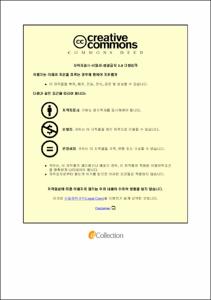Ulsan Univ. Repository
Thesis
General Graduate School
Mechanical & Automotive Engineering
1. Theses (Master)
A study on the life cycle assessment for the calculation of greenhouse gas emissions and the evaluation of eco-friendliness in the production of clean hydrogen using biogas
- Abstract
- The increasing demand is driving a rapid development in hydrogen production. However, since the procedures involved in producing hydrogen have the potential to pollute the environment, more considerations must be taken. This work specifically looks at carbon dioxide CO2 emissions associated with the production of hydrogen which is a significant contributing factor to the greenhouse effect. This study offers a comprehensive numerical analysis of the carbon dioxide emissions associated with hydrogen production from various renewable feedstocks. The study focuses on renewable feedstocks, such as landfill gas, animal and food waste, and wastewater (sludge). Robust examination yields interesting revelations on carbon dioxide emissions using GREET 2022 software. The discovery that using wastewater sludge as a feedstock result in the lowest carbon dioxide emissions (-26.83 kg CO2/kgH2) is especially notable unlike, blending above 25% with other renewable feedstocks which was noticed to raise carbon dioxide emissions correspondingly. Furthermore, it is disclosed that the utilization of landfill gas results in the maximum emissions of carbon dioxide among all different waste combinations, amounting to (3.92 kg CO2/kg H2). These results not only greatly advance the usage of renewable feedstocks but also offer insightful information to stakeholders seeking to reduce greenhouse gas emissions.
- Issued Date
- 2024
- Awarded Date
- 2024-08
- Type
- Dissertation
- Alternative Author(s)
- AZAMLY MARIAM S I
- Affiliation
- 울산대학교
- Department
- 일반대학원 기계자동차공학과
- Advisor
- Ocktaeck Lim
- Degree
- Master
- Publisher
- 울산대학교 일반대학원 기계자동차공학과
- Language
- eng
- Rights
- 울산대학교 논문은 저작권에 의해 보호받습니다.
- Appears in Collections:
- Mechanical & Automotive Engineering > 1. Theses (Master)
- 파일 목록
-
-
Download
 200000805514.pdf
기타 데이터 / 3.37 MB / Adobe PDF
200000805514.pdf
기타 데이터 / 3.37 MB / Adobe PDF
-
Items in Repository are protected by copyright, with all rights reserved, unless otherwise indicated.